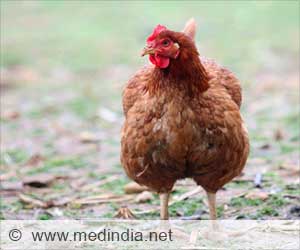An international study led by University of Leicester researchers has indicated that vaccination will be the best way to protect people in the event of the next influenza pandemic,
An international study led by University of Leicester researchers has indicated that vaccination will be the best way to protect people in the event of the next influenza pandemic, but added that each person would need two doses.
Influenza pandemic occurs when a new influenza strain emerges (one to which humans have no immunity), mutates and spreads globally as a virus.It is not feasible to predict the actual pandemic influenza strain, but global health authorities have identified H5N1 avian influenza as a strain with the greatest pandemic potential in humans.
"In the event of the next influenza pandemic, vaccination will be the best way to protect people. Because of manufacturing capacity constraints, vaccines ideally need to be as a low dose as possible so that limited antigen material can be optimally used," said Dr Iain Stephenson, Consultant in Infectious Diseases at the Leicester Royal Infirmary and a Clinical Senior Lecturer at the University of Leicester.
"In addition, it generally takes two doses of vaccine to give a good response, so if a pandemic occurred it would take some time to produce vaccine and then administer 2 doses to protect people. Therefore stockpiling of vaccines has been suggested to overcome some of these difficulties. However, subjects will still require 2 doses to generate protection and if the pandemic spreads rapidly this could be challenging to deliver," Stephenson.
For the study, the researchers looked at boosting those people who were vaccinated up to 7 years ago in the first H5 vaccine trials conducted in Leicester with a new updated H5 vaccine, in comparison to vaccinating subjects for the first time.
"We have found that a single low dose booster vaccine, given 7 years later, generated a very rapid response and within 1 week of vaccination, over 80 percent subjects had an excellent response to all strains of the H5 virus. In comparison, the unprimed subjects who were vaccinated for the first time needed two doses of vaccine and achieved protective levels of antibody after 6 weeks as expected," the authors said.
Advertisement
These results potentially provide a rationale to prevent pandemic influenza by proactively immunizing the public with stockpiled pre-pandemic vaccines.
Advertisement
Source-ANI
RAS/SK







